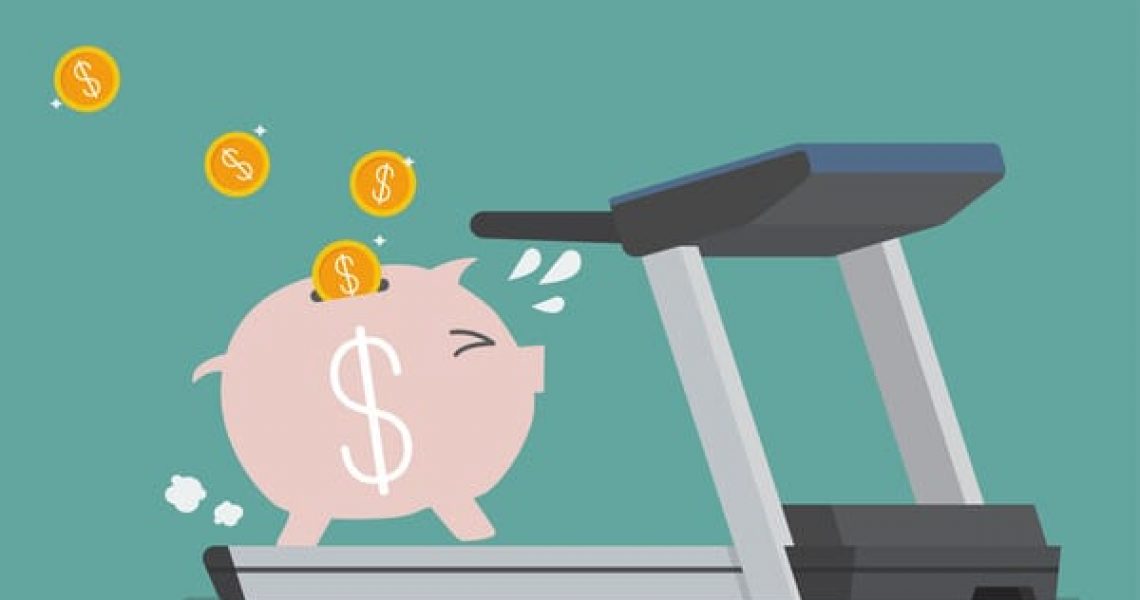Do you have a financial fitness plan? If you don’t, here’s a practical guide to protect your goals from potential financial crises using quick loans. Your savings accounts are the resources you will draw on to meet potential needs for expenses in life. Here’s how to maximize your wealth and save money for the rainy days using your borrowed money:
Determine Your Net Worth
Doing some calculation of your assets isn’t difficult. After all, you need to do this every time you file your taxes. How much is the total value of your assets? Anything that brings money into your pocket is an asset. And whatever lowers your assets is a liability. Practically speaking, a house on a mortgage is not an asset. It is collateral. The bank can get it if you default on your monthly payments. They can threaten you with a forced sale, and if you don’t pay on time—you’ll lose it to your lender. For example, if you still have a mortgage then the fair market value of your house cannot be considered as your asset. You only have equity to that house or a portion of the principal that you have already paid off. While you can use that equity to get a second mortgage, you don’t own the whole of it.
Here’s how to compute it if the total value of your house is $500,000 and you paid off 50% of the principal, then you only have 50% equity on your house. That’s the only asset you have, not the fair market value of your home. A lot of people think that a house on a mortgage is an asset because they have stored equities. The truth is that you only own the part you paid for.
Here are examples of assets:
- Certificates of deposit
- Checking and savings accounts
- Real estate
- Retirement accounts
- Retirement benefits
- Stocks
- Home equity
- Fully paid home
- Fully paid car
- Jewellery
Now, it’s time to add up your liabilities. All your debts are liabilities:
- Car loan
- Credit card debt
- Income taxes
- Outstanding bills
- Remaining mortgage on your house
- Student loans
Subtract all your liabilities from your current assets and that leaves you with your net worth.
Calculate How Much You Need
If you’re not excited about creating a budget, don’t fret; you’re not alone. Who wants to compute all the receipts anyway? Unless you have a habit of putting utility bills, reminders and memos on your fridge, doorposts and bedroom, no one can really expect you to jot down all your expenses. But, that’s the key to financial freedom.
If you want to achieve something, you must be ready to make some sacrifices and that includes keeping tabs of your expenses. So what if you’re mistaken for a stamp collector it’s your life. Those receipts can also serve as your guide next time you plan to purchase something.
Here are some important points to consider when making a budget:
Decide what you want to accomplish with your borrowed money
As a borrower, the first question to ask yourself when obtaining quick loans is what you want to accomplish with that money within a month or in the succeeding months. That includes your net worth and the proceeds of your quick loan.
If you are living with your significant other/s and you think your budget will involve them, discuss what they expect to be accomplished too within a certain time period. Involving them in the discussion will make sure that you can narrow all your goals into a manageable list. By doing so, you can expect them to be supportive in adhering to your budget.
Allocate your budget towards financial fitness
Divide your financial resources into different areas you’d like to focus on. These include:
- Daily expenses
- Monthly bills
- Investments (if you haven’t invested in stocks, bonds or a mutual fund, it might be time to look into it).
- Business: This is the best investment because you’re actually growing your money. Whether it is small scale or large, the mere fact that you are putting money into it and expecting profits is a deal-breaker. If you really want to save money, make sure that you grow whatever you have so that you can save extra money for future needs.
Revisit your budget and check if it’s helping your financial fitness
Review your budget and update it on a monthly basis to determine whether there is a shortfall and if you can make further cuts.
Financial health is something that we work on every day. A minor glitch can cause havoc on our finances. But, you can make it with the right financial strategy and quick loans product. Discover everything you need to know about quick loans by talking to the loan experts at Australian Lending Centre today. Enquire now!





